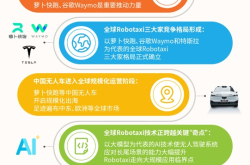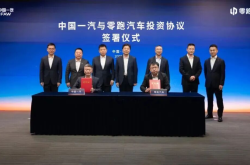Jiyue lifts "Xiaomi" to hit its own feet
![]() 08/25 2024
08/25 2024
![]() 647
647
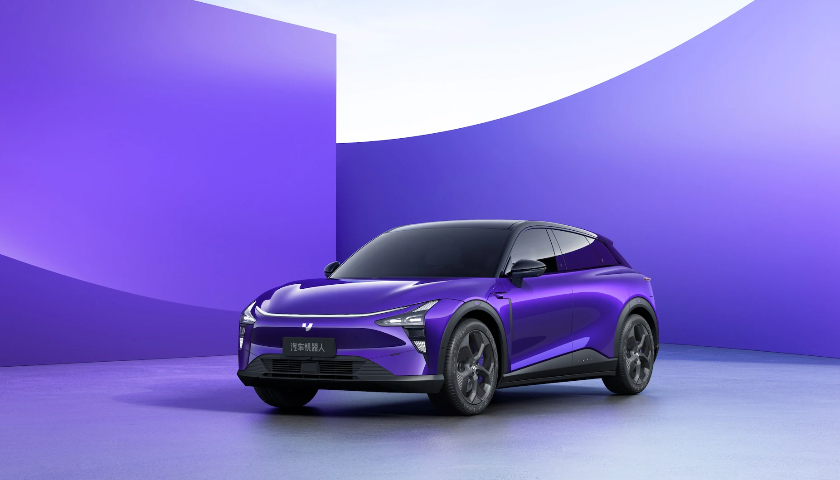
Written by Dou Wenxue
Edited by Ziye
Jiyue has caused trouble for itself.
On the morning of August 22, the news that "Jiyue's PR head blasted Xiaomi for selling cars at a loss" sparked attention. Relevant screenshots showed that Xu Jiye, Jiyue's PR head, posted on WeChat Moments that Xiaomi and Lei Jun's selling cars at a loss was dumping, the worst form of business ethics.

Image source: National Business Daily
Subsequently, Xu Jiye responded multiple times, stating that his WeChat Moments posts were merely personal opinions, and Jiyue CEO Xia Yiping issued an internal notice for disciplinary action against him.
The incident stemmed from Xiaomi Group's release of its Q2 2024 financial report on August 21, which disclosed its automotive business performance for the first time. Data showed that Xiaomi's innovative business, including smart electric vehicles, generated revenue of 6.4 billion yuan, with 27,307 new vehicles delivered in the quarter, resulting in a net loss of 1.8 billion yuan in the innovative business segment.
Based on this, Xiaomi lost over 60,000 yuan per vehicle sold.
Xiaomi's willingness to sell cars at a loss to expand market share is not a model that all automakers can emulate. Xiaomi has sufficient cash flow to support this strategy, but Jiyue may not.
Xu Jiye's comments stemmed from the fact that, despite being backed by Baidu and Geely, Jiyue's sales have been sluggish.
Jiyue's second model, the Jiyue 07, is scheduled for launch, targeting Xiaomi's SU7. As a direct competitor, Jiyue's criticism of Xiaomi may stem partly from being compared to Xiaomi by industry insiders, which often leads to being labeled as "inferior."
Jiyue's voice is not loud, and sales of its only launched product, the Jiyue 01, have been dismal. In the first half of 2024, cumulative sales of the Jiyue 01 were only 2,700 units. Since its launch, monthly sales have been as low as just over 100 units.
Xu Jiye's remark about "some companies can't sell without discounts" also applies to Jiyue itself. At the end of November last year, just one month after its launch, Jiyue reduced prices for all models of the Jiyue 01 by 30,000 yuan.
However, constant price cuts do not address the root problem. Jiyue's "self-rescue" may begin with enhancing product and brand power.
1. Xiaomi sells at a loss to boost sales, but Jiyue panics?
On the evening of August 21, Xiaomi Group released its Q2 2024 financial report, revealing a "loss-making" automotive performance.
In stark contrast to Xiaomi Group's total revenue of 88.888 billion yuan in Q2, Xiaomi Auto incurred a loss of 1.8 billion yuan, translating to a loss of over 60,000 yuan per vehicle sold.
On the same day, the topic "Xiaomi loses over 60,000 yuan per car sold" gained attention.
Despite the significant losses, Lei Jun and Xiaomi remained calm, but Jiyue was enraged.
On the morning of August 22, screenshots of Xu Jiye's WeChat Moments sparked controversy. The screenshots showed Xu Jiye blasting Lei Jun and Xiaomi, criticizing Lei Jun's lack of ethics and questioning why Xiaomi continues to sell cars at a loss.
As the topic of "Xiaomi selling cars at a loss" gained traction, the screenshots also went viral, bringing controversy to Jiyue. Xu Jiye subsequently responded twice, stating that his WeChat Moments posts were personal opinions.
He also posted a "please let it go" message, hoping the media would convey his desire to reduce the incident's impact to Xiaomi's PR team. Later that evening, Xu Jiye shared an email from CEO Xia Yiping announcing internal disciplinary action against him, hoping it would serve as a warning.
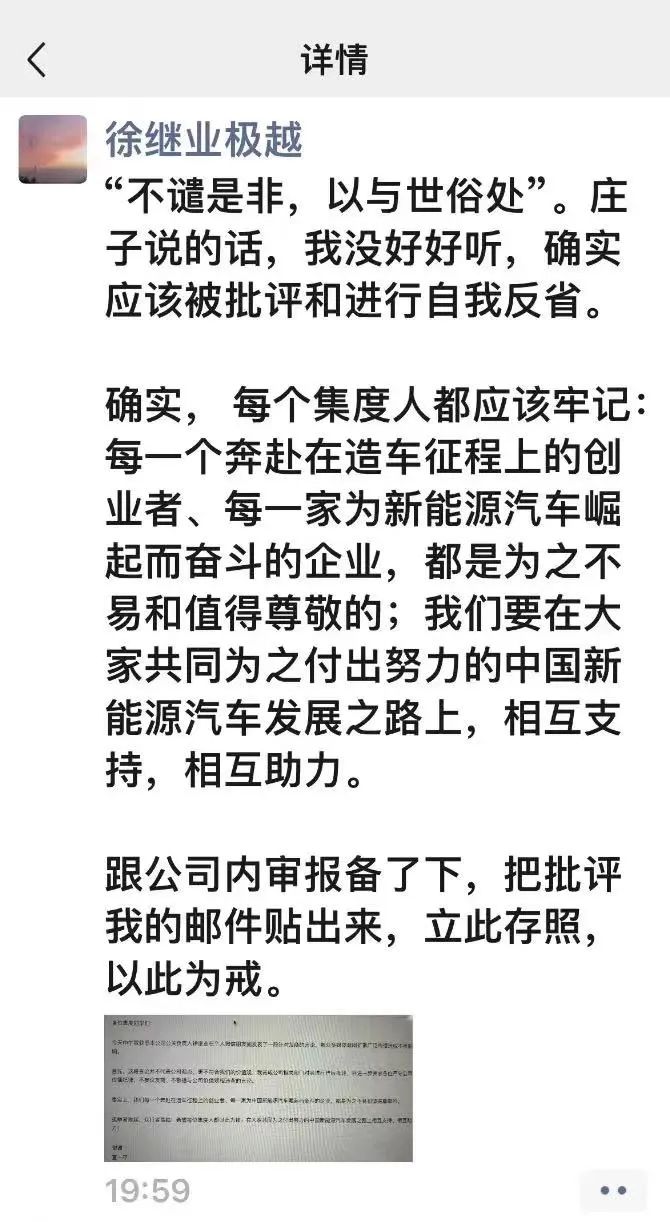
Image source: The Paper
At the heart of this incident, Jiyue's anxiety stems from Xiaomi's ability to invest heavily in automotive sales, whereas Jiyue's sales remain sluggish.
Xiaomi's financial statements reveal a cash reserve of 141 billion yuan, ensuring sustained investment and development in its automotive business.
As Lei Jun mentioned in a livestream on August 22, Xiaomi Auto is still in the investment phase, and while the financial performance reflects a loss of 1.8 billion yuan in Q2's innovative business segment, it also signifies an investment of the same amount.
"Once we reach a certain scale, I believe it will be easy to break even, so everyone doesn't need to worry about us," said Lei Jun.
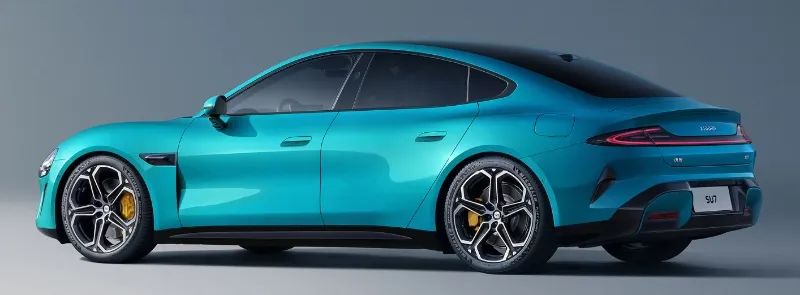
Image source: Xiaomi Auto's official website
Looking at Jiyue, it was also born with a "golden key," backed by internet giant Baidu and experienced automaker Geely.
However, this backing also creates a dependency. Jiyue must first prove its strength to secure sufficient financial support.
Jiyue's upcoming Jiyue 07, scheduled for release in September, targets Xiaomi's SU7. However, amidst news of Xiaomi's loss-making sales strategy, the Jiyue 07 fails to generate the same buzz, perhaps explaining Jiyue's PR head's anxiety.
2. Why is Jiyue anxious when its cars aren't selling?
Jiyue's primary concern remains sluggish sales.
Jiyue has set high aspirations, positioning itself as a high-end smart automotive robot, claiming top-tier autonomous driving capabilities in China. Jiyue believes it is one of only three brands (Huawei, XPeng, and Jiyue) to officially offer city navigation assistance to users.
Baidu also boasts that Jiyue boasts highly mature high-level assisted driving capabilities, making it the first domestic automaker to rely solely on a pure vision-based autonomous driving solution.
Jiyue's first model, the Jiyue 01, targets Tesla. Priced similarly to Tesla's Model Y, Jiyue 01 Max and Jiyue 01 Max Performance are sold for 249,900 yuan and 339,900 yuan, respectively. Xia Yiping has stated that Jiyue intended to compete directly with Tesla from the outset, citing similarities in wheelbase, length, handling, range, and acceleration.
Recently, Jiyue also announced the full rollout of its OCC (Occupancy Network Consistency) perception model, becoming the first new-energy vehicle brand in China to implement this technology.
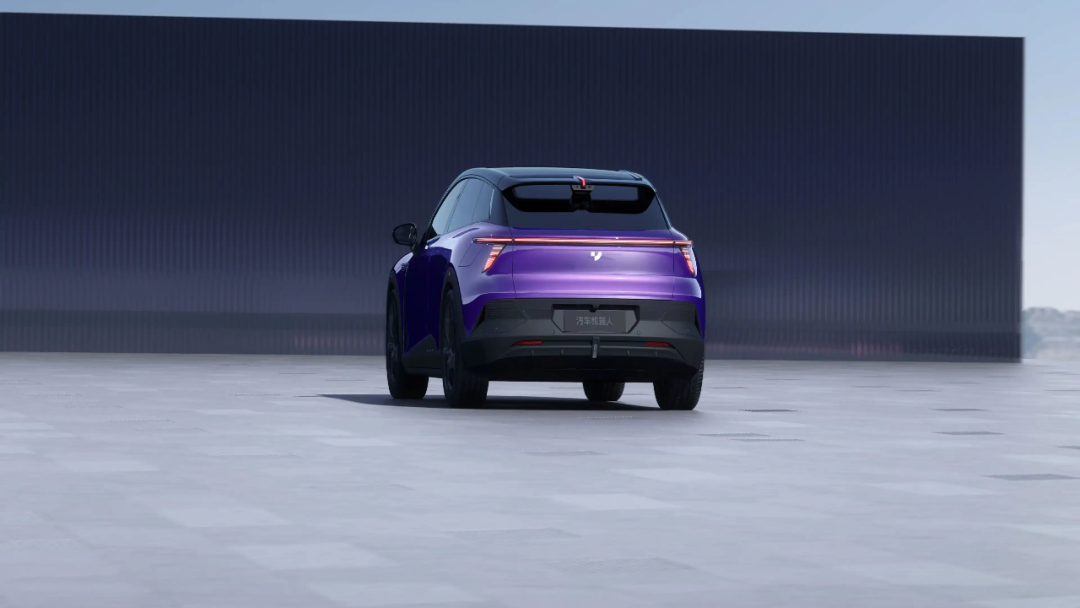
Jiyue 01, image source: Jiyue's official website
However, despite its ambitious positioning, the Jiyue 01 fails to sell.
While Jiyue announced 15,000 orders within 24 hours of its launch, it reduced prices by 30,000 yuan across all models just one month later to boost sales.
Data supports this, with sales hovering around three digits since its launch, with the lowest monthly sales of 218 units and the highest of 1,001. In the first half of 2024, cumulative sales of the Jiyue 01 were only 2,700 units.
Jiyue's sales struggles may relate to its brand image and product positioning. Although Jiyue is Baidu's primary vehicle for automotive ventures, it was initially known alongside Baidu as Jidu, not Jiyue.
In January 2021, Baidu announced its partnership with Zhejiang Geely Holding Group to enter the automotive industry. In March of the same year, they jointly established Jidu Auto Co., Ltd., with Baidu and Geely holding 55% and 45% stakes, respectively.
In June 2022, Jidu quickly unveiled its first concept car, ROBO-01, billing it as a "revolutionary automotive robot with intelligence and emotion."
However, ROBO-01's debut was marred by poorly animated presentations, earning criticism for its "five-cent special effects." Meanwhile, ROBO-01, which had previously compared itself to various competitors, faced backlash from other new-energy vehicle brands. For instance, a senior executive at HiPhi criticized ROBO-01 for "copying various designs," likening it to a mishmash of Nezha's styling, Byton's large screen, and HiPhi's ISD technology.
Following this setback, Jidu underwent corporate changes. Geely-affiliated companies withdrew, and Baidu-affiliated companies increased their stake to 100%, renaming the company Shanghai Mihang Automobile Co., Ltd. in late 2022.
It wasn't until August 2023 that Geely and Baidu renewed their partnership, jointly investing in Hangzhou Jiyue Automobile Technology Co., Ltd., with stakes of 65% and 35%, respectively. This marked the official birth of the Jiyue brand, but its influence had waned significantly by then, with less than two months remaining until the launch of its first new car.
Perhaps eager to ingratiate itself with consumers under its "new name," Jiyue adopted Jidu's strategy of comparing itself to various brands before product launches, sparking numerous controversies.
Moreover, Jiyue's positioning as an "automotive robot" is not a rigid consumer demand. Consumers still prioritize factors like space, power, range, and price when purchasing vehicles.
While Jiyue consistently emphasizes its superior autonomous driving technology, it overlooks the fact that consumers compare its products holistically with other brands, leading to criticisms of other Jiyue 01 features. For instance, both the Jiyue 01 and Jiyue 07 adopt a handle-less design, prompting jokes about what the door handles did wrong.
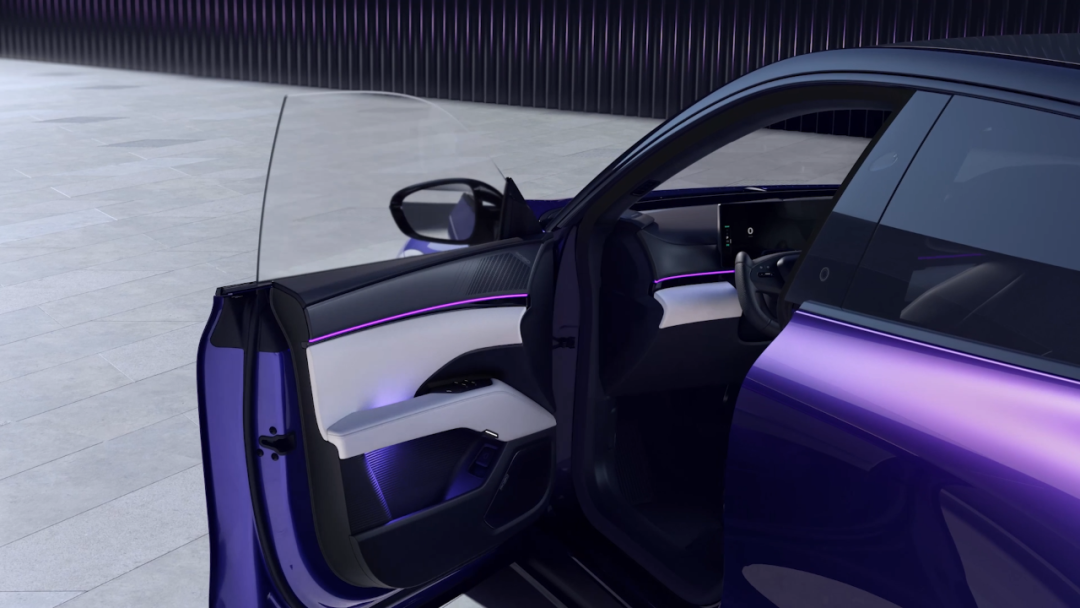
Partial view of the Jiyue 01, image source: Jiyue's official website
Given the current situation, Jiyue's anxiety is understandable, but attacking competitors is unlikely to bring about tangible change.
3. What can Jiyue rely on for self-rescue?
In reality, not only Xiaomi Auto struggles to turn a profit; many new-energy vehicle companies also sell cars at a loss.
According to China Business Network, only Tesla, BYD, and Li Auto have achieved profitability among new-energy vehicle companies, while most others are deeply in the red.
NIO, for instance, reported a net loss of 21.15 billion yuan in 2023, an increase of 45.25% year-on-year. In Q1 2024 alone, NIO's net loss reached 5.18 billion yuan.
Not only are automakers losing money, but they're also cutting prices. According to DoNews, companies like BYD, SAIC-GM-Wuling, Changan Automobile, NIO, XPeng, and Tesla have either directly reduced prices or offered limited-time discounts, with reductions ranging from 5% to 15%.
Data from China.com shows that compared to 2022, the average prices of both fuel-powered and new-energy vehicles decreased by 1-3% in 2023, with new-energy vehicles experiencing a more significant drop.
In today's rapidly evolving technological landscape, new-energy vehicle companies must invest heavily in R&D upfront to keep pace with the industry's rapid iteration. Expanding sales scale is crucial to offsetting losses.
Therefore, price cuts can be a viable strategy if they lead to increased sales.
As mentioned earlier, Jiyue reduced prices across all models of the Jiyue 01 by 30,000 yuan just one month after its launch, but this did not boost sales and instead exacerbated Jiyue's losses.
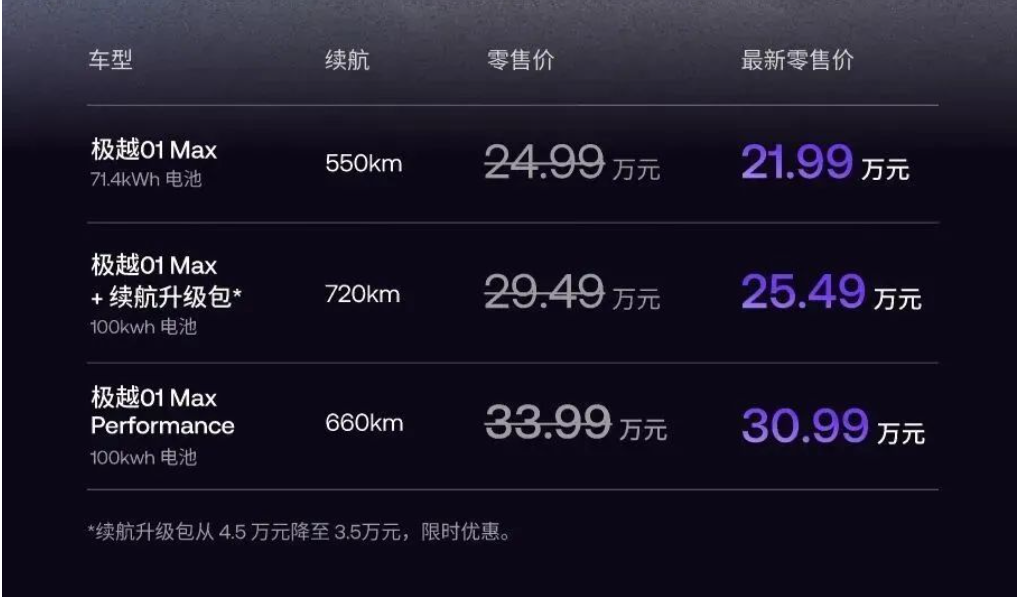
Jiyue 01's price list in December 2023, image source: Jiyue's official WeChat account
According to Automotive Intelligence's calculations, taking Zhengzhou as an example, Jiyue 01 sold an average of 7.5 units per month. With four stores in Zhengzhou, this translates to fewer than two sales per store per month.
It's essential to note that operating automotive stores is costly. The report also mentions that based on this sales performance, the stores are undoubtedly operating at a loss.
Thus, Jiyue has high hopes for its upcoming Jiyue 07 model. However, it wasn't until August 16 that Jiyue officially announced the mass production of the Jiyue 07. According to LeiPhone, some salespeople indicated that deliveries might not commence until the end of the year.
Nonetheless, Jiyue's self-rescue may still rely on its autonomous driving technology.
On the one hand, autonomous driving is Jiyue's strength. On the other hand, the broad prospects for autonomous driving make it a crucial aspect of new-energy vehicle companies' strategies.
Fangzheng Securities analysis indicates that the launch of multiple new intelligent models will significantly increase the penetration rate of high-level assisted driving, driving continuous expansion in the autonomous driving industry. Coupled with the expected liberalization of autonomous driving policies, high-level assisted driving is expected to reach an inflection point in 2024.
Recently, Jiyue leveraged its partnership with Luobokuai (a self-driving taxi service) to achieve a sales boost.
In July 2024, Jiyue sold 1,143 Jiyue 01 units, a 147.94% month-on-month increase. According to LeiPhone, an industry insider attributed this growth to Jiyue and Luobokuai sharing the same autonomous driving platform, with Luobokuai's popularity driving sales of Jiyue vehicles.
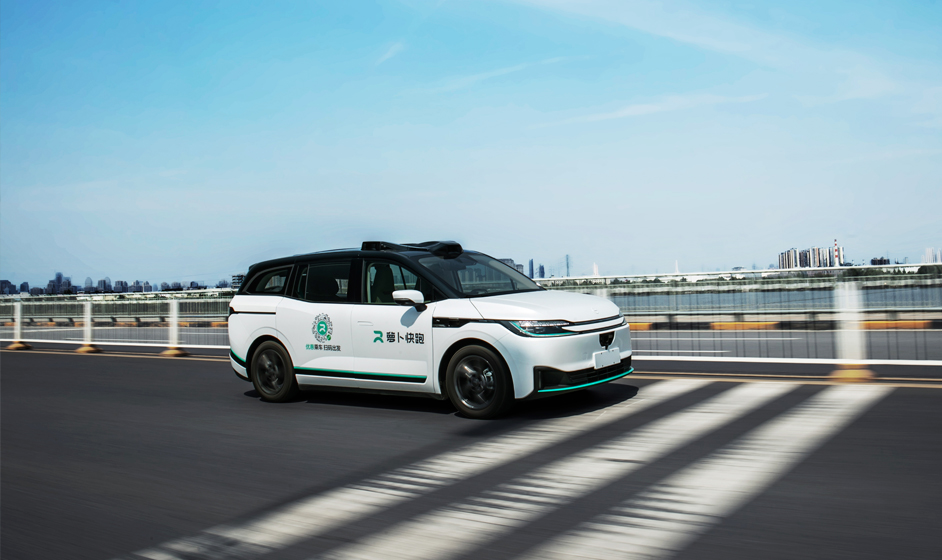
Luobokuai, image source: Luobokuai's official website
Jiyue undoubtedly needs more attention, but this controversy reveals its anxious mindset, failing to achieve positive results. Ahead of the Jiyue 07's launch, Jiyue must recognize its strengths and weaknesses, find more effective marketing strategies, and turn around its brand image.
(The featured image of this article is sourced from Jiyue's official website.)

